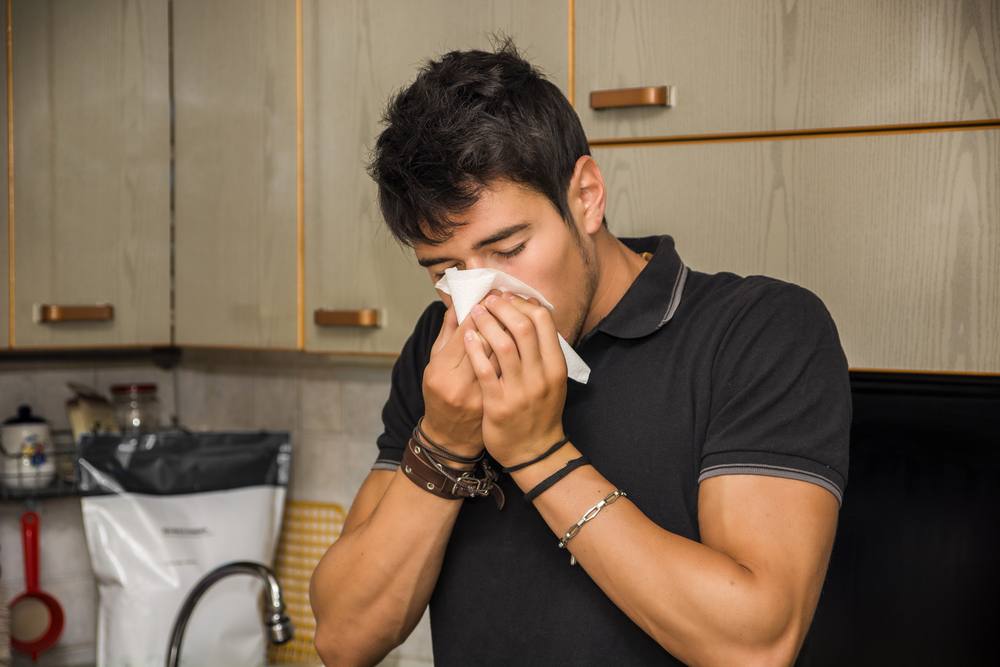
Allergic rhinitis is a common condition that causes bothersome symptoms. You sneeze a lot. Your nose is itchy, runny and stuffy. Your throat is sore or scratchy, and you cough incessantly. Your eyes itch and are watery. You feel tired and your head aches. Sometimes, you even develop skin rashes.
Fortunately, there are simple and easy homecare steps you can take to manage allergic rhinitis—and pamper your allergic nose.
Avoid or reduce your contact with allergens. Doing so may be able to reduce your allergy symptoms and manage them without medicine or with fewer medicines, as well as lower your risk for complications such as sinusitis.
Manage your symptoms. While avoiding allergens, you can also take steps to ease allergic rhinitis symptoms:
Take care of your sore, chapped nose. Blowing and wiping your runny nose all-day long can be tough on your sniffer. Here are some expert tips to soothe your roughed up nose:
Use soft tissue or toilet paper. Pre-moistened wipes (e.g. diaper wipes) or those made for removing makeup contain fragrance, detergents, or other chemicals that may further irritate cracked, dry skin.
Pat, don’t wipe. When you blow your nose, pat your nostrils and the skin around your nose dry instead of rubbing or wiping. When you pat, you get less friction and skin irritation than if you rub. That saves you some pain later.
Moisturize multiple times a day. Several times a day, dab a small amount of a gentle petrolatum-based product around your nostrils and onto any irritated patches of skin around your nose. Ointments are more helpful than creams or lotions, because they form a waterproof seal that lets the skin underneath heal.
Flush more so you can blow less. Rinse your nasal passages with a gentle saline (salt water) solution twice a day, morning and night. This will ease your congestion and rinse mucus out of your nasal passages without you having to blow your nose.
Sip tea and hot soup. The steam that rises from a hot bowl of soup or a cup of tea moisturizes your skin and nasal passages. It can even help loosen up mucus deeper in your nose so that you can more easily blow it out later.
-Medical Observer
Overweight and obesity are defined as abnormal or excessive fat accumulation that presents a risk to health. A body mass […]
Around 27 million Filipino adults are overweight or obese, according to the latest National Nutrition Survey conducted by the Food […]
Advances in scientific and technological knowledge have provided unprecedented advantages in terms of immeasurable convenience in our daily living, lightning-fast […]